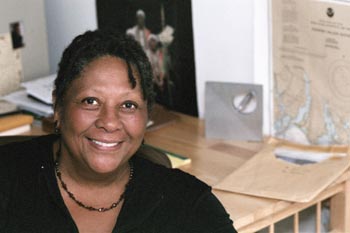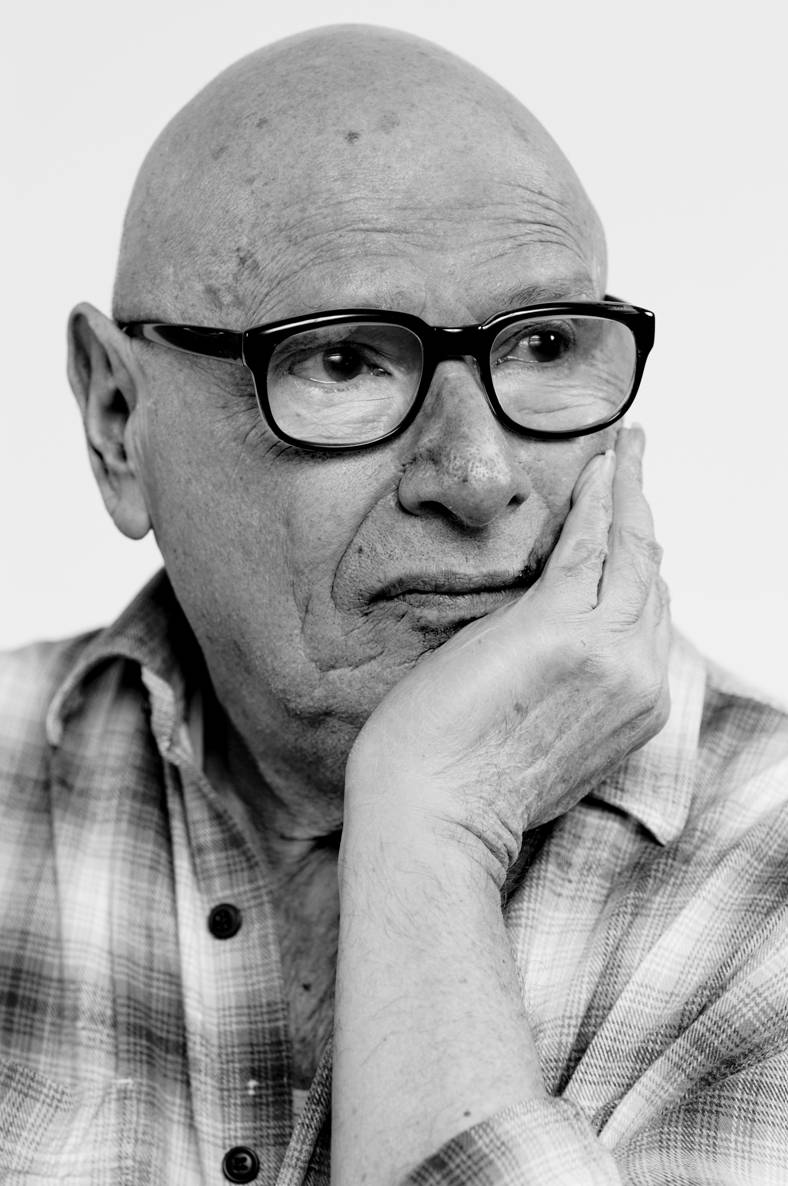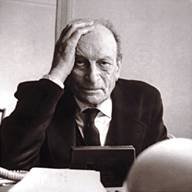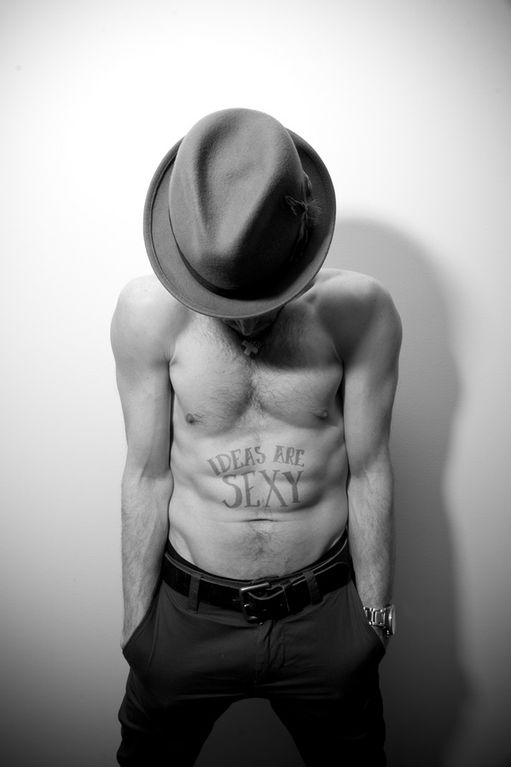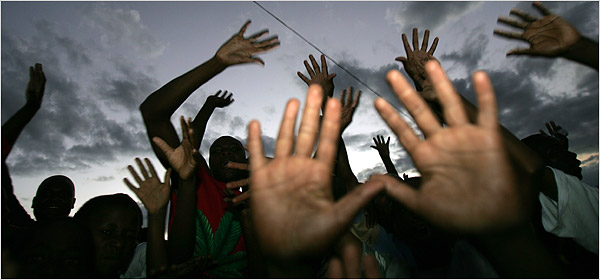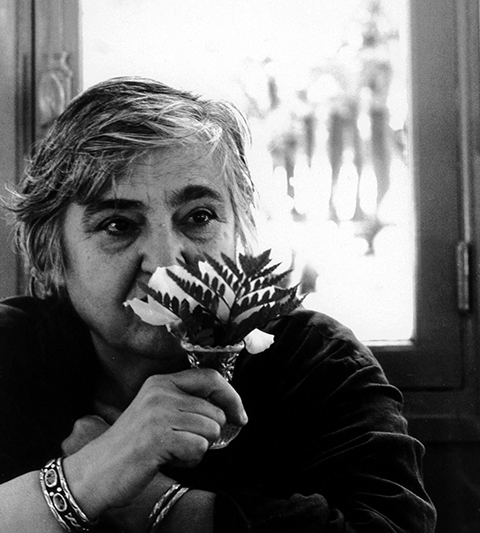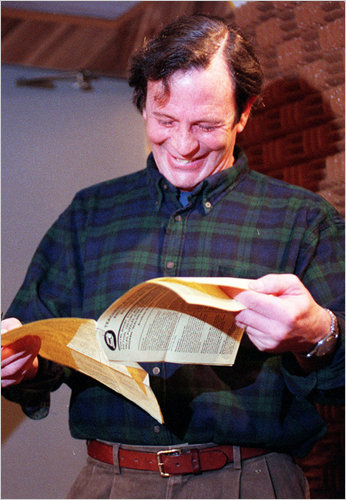AWESOME CREATOR: WORDSANDMUSICMAN :: David King, New York, NY
[caption id="attachment_682" align="alignleft" width="300" caption="Photo: Thomas Ahern & Misha Jenkins"] [/caption]
[/caption]
Who am I: David King
What am I: Educator. Writer. Songwriter. Performer. Artist. Where am I: New York, NY, USA Kid tested, Exit Strata Approved Event: 4/20 at 10pm David King without the Confirmed Bachelors (solo acoustic set) Pete's Candy Store, Brooklyn, NY(Follow DK & the CB here for upcoming shows, digital media, and other updates)
_______POETRY MONTH 30/30/30: Inspiration, Community, Tradition: DAY 16:: Karen Clark on Marilyn Nelson
 I want to talk about the work of Marilyn Nelson, whose poems fill me with the same mixture of awe, reverence and exultation that I experienced last month standing in the Philadelphia Museum of Art in front of the Van Gogh exhibition. It is the sense of privilege at having witnessed this miracle: that it is possible to take suffering, pain, and man’s brutal inhumanity to man and transform them, through the alchemy of art and genius, into works of sheer glory that become a lifelong blessing to the beholder, comforting us with the knowledge that the pain and the suffering were not wasted, not meaningless, for this beautiful work of art came out of it all, to spread its balm upon the human spirit and remind us that the artist’s sacred mission is to heal the world. Only recently I was overjoyed to see that Nelson (who has been honored many times for her work) was the 2011 recipient of the Poetry Society of America’s highest honor, the Frost Medal.
I want to talk about the work of Marilyn Nelson, whose poems fill me with the same mixture of awe, reverence and exultation that I experienced last month standing in the Philadelphia Museum of Art in front of the Van Gogh exhibition. It is the sense of privilege at having witnessed this miracle: that it is possible to take suffering, pain, and man’s brutal inhumanity to man and transform them, through the alchemy of art and genius, into works of sheer glory that become a lifelong blessing to the beholder, comforting us with the knowledge that the pain and the suffering were not wasted, not meaningless, for this beautiful work of art came out of it all, to spread its balm upon the human spirit and remind us that the artist’s sacred mission is to heal the world. Only recently I was overjoyed to see that Nelson (who has been honored many times for her work) was the 2011 recipient of the Poetry Society of America’s highest honor, the Frost Medal.
POETRY MONTH 30/30/30: Inspiration, Community, Tradition: DAY 14 :: Daniel Owen on Bill Kushner
 I first encountered Bill Kushner’s work at a reading at the Poetry Project a few years ago. That night, he read from In Sunsetland With You, a book of poems that emanate from young Billy’s relationship with old Abe Lincoln, poems that, with a language of grace and humor, narrate the misadventures of a lonely, horny, eternally innocent, old, sad, and joyous spirit through the wars, highway-watching nights, and skinny-dippings of Sunsetland. What struck me most about these poems, and what continues to strike me through all of Bill's work, is the delicate balance between wrenching and buoying the heart. Bill’s poems are like walking through the world with one’s eyes open, with the workaday bullshit stripped away; he reads the raw Whitman writ on every street corner or fragment of memory, real or imagined.
Over the course of eight books, Bill has rambled through the streets of Sunsetland and New York, across sonnets and daily diary poems, lustily crusing through time present and past, Billie Holiday records, beefcake babies, always in a mood of love, love, love. Yes, love appears on almost every page and it sure feels real, flapping in the face and the mind and the blood of a humble human life.
I first encountered Bill Kushner’s work at a reading at the Poetry Project a few years ago. That night, he read from In Sunsetland With You, a book of poems that emanate from young Billy’s relationship with old Abe Lincoln, poems that, with a language of grace and humor, narrate the misadventures of a lonely, horny, eternally innocent, old, sad, and joyous spirit through the wars, highway-watching nights, and skinny-dippings of Sunsetland. What struck me most about these poems, and what continues to strike me through all of Bill's work, is the delicate balance between wrenching and buoying the heart. Bill’s poems are like walking through the world with one’s eyes open, with the workaday bullshit stripped away; he reads the raw Whitman writ on every street corner or fragment of memory, real or imagined.
Over the course of eight books, Bill has rambled through the streets of Sunsetland and New York, across sonnets and daily diary poems, lustily crusing through time present and past, Billie Holiday records, beefcake babies, always in a mood of love, love, love. Yes, love appears on almost every page and it sure feels real, flapping in the face and the mind and the blood of a humble human life.
POETRY MONTH 30/30/30: Inspiration, Community, Tradition: DAY 13:: Lancelot Runge on Philippe Soupault
 An interest in surrealist game play and collaboration brought me to Philippe Soupault years ago. My current manuscript deals with the doubling or mirroring of the self, as well as reconciling mythology and contemporary pissnshit vernacular (as a shamelessly romantic)- all of which I find in Soupault. Translations lead me to where I can mishear dialogue and rewrite my favorite songs, call them my own.
Philippe Soupault est un poète français, né à Chaville le 2 août 1897, décédé à Paris le 12 mars 1990. Avec ses amis André Breton et Louis Aragon il participe à l'aventure Dada, qu'il considère comme une « table rase nécessaire », pour ensuite se tourner vers le surréalisme, dont il est un des principaux fondateurs avec André Breton. Avec ce dernier, ils ont en effet écrit le recueil de poésie Les Champs magnétiques en 1919, selon le principe novateur de l'écriture automatique. Ce recueil de poésie peut être considéré comme une des premières oeuvres surréalistes, alors que le mouvement ne se lancera vraiment qu'en 1924 avec le premier Manifeste du surréalisme d'André Breton.
An interest in surrealist game play and collaboration brought me to Philippe Soupault years ago. My current manuscript deals with the doubling or mirroring of the self, as well as reconciling mythology and contemporary pissnshit vernacular (as a shamelessly romantic)- all of which I find in Soupault. Translations lead me to where I can mishear dialogue and rewrite my favorite songs, call them my own.
Philippe Soupault est un poète français, né à Chaville le 2 août 1897, décédé à Paris le 12 mars 1990. Avec ses amis André Breton et Louis Aragon il participe à l'aventure Dada, qu'il considère comme une « table rase nécessaire », pour ensuite se tourner vers le surréalisme, dont il est un des principaux fondateurs avec André Breton. Avec ce dernier, ils ont en effet écrit le recueil de poésie Les Champs magnétiques en 1919, selon le principe novateur de l'écriture automatique. Ce recueil de poésie peut être considéré comme une des premières oeuvres surréalistes, alors que le mouvement ne se lancera vraiment qu'en 1924 avec le premier Manifeste du surréalisme d'André Breton.
AWESOME CREATOR: PLAYWRIGHT :: Mark Snyder, Brooklyn NY
Mark Snyder, Ladies and Gentleman!
MARK SNYDER started writing plays in the eighth grade, casting himself in the juiciest parts. He now prefers giving real live actors that opportunity. His work has been performed at HERE, The Tank, the SF OOB [Samuel French Off-Off Broadway Play] Festival, the (sadly-defunct) Slipper Room, Pete's Candy Store, and throughout assorted speakeasies and bistros throughout downtown NYC. He can be found riding his bike and churning homemade ice cream at home in Brooklyn, and at: www.facebook.com/markbsnyder.
**Editor's Note: Mark has a terrific new play out, so he's been sneaky and given us our WWWWHW answers in regards to A DECENT STRETCH, showing at THE TANK NYC on 4/28-29. We are so excited about the play (and bringing a cadre of folks -- come with!) that we allowed it -- for now. Check back for more on Mark's creative process (the real WWWWHW) shortly! What we cannot leave out of this profile is that for our inaugural A.C., no one fits the bill more than Mark -- in addition to having a FT "job" (shiver) this man gets up every day before 5 am to write. The last play I saw of his was up at HERE... a month ago. And that's about the clip he keeps. CONSTANT rigor. He is a marvel and an inspiration! (And look at those abs!)Announcing: The AWESOME CREATOR Series
 Who is an awesome creator?
Why... YOU are!
It's still Poetry Month, and we at Exit Strata have been largely focused on that discipline, with our invitational 30/30/30 Inspiration, Community, Tradition posts.
However, we want to stress that we love and are inspired by *all* creative disciplines -- in fact, that this big love is why we are here. The primary intention behind using our virtual home as a portal for not only for content but for people is to bring together creators from all mediums: a reminder that we are more alike than we are different.
Who is an awesome creator?
Why... YOU are!
It's still Poetry Month, and we at Exit Strata have been largely focused on that discipline, with our invitational 30/30/30 Inspiration, Community, Tradition posts.
However, we want to stress that we love and are inspired by *all* creative disciplines -- in fact, that this big love is why we are here. The primary intention behind using our virtual home as a portal for not only for content but for people is to bring together creators from all mediums: a reminder that we are more alike than we are different.
POETRY MONTH: 30/30/30: Inspiration, Community, Tradition: DAY 12 :: Frank Sherlock on Etel Adnan
 Etel Adnan was born in 1925 in Beirut, Lebanon. Her father was a Syrian Muslim and her mother was a Greek Christian. She was raised speaking French, English, and her father taught her written Arabic. Adnan studied philosophy at the Sorbonne, Paris, University of California, Berkeley, and Harvard. She has many books of poetry and fiction published, including Paris When It's Naked, Of Cities and Women, and Sitt Marie Rose, which has been translated into over ten languages and is considered a classic of Middle Eastern literature. She also creates oils, ceramics and tapestry.
“A life spent writing has taught me to be wary of words. Those that seem clearest are often the most treacherous.” So begins Amin Malouf's In the Name of Identity: Violence and the Need to Belong. [Ed: free e-book/pdf at link] As words are navigated into the public sphere, to be watchful requires an interrogation of language, conscious of its make up and observant of mutations as it travels across borders and time.
Etel Adnan was born in 1925 in Beirut, Lebanon. Her father was a Syrian Muslim and her mother was a Greek Christian. She was raised speaking French, English, and her father taught her written Arabic. Adnan studied philosophy at the Sorbonne, Paris, University of California, Berkeley, and Harvard. She has many books of poetry and fiction published, including Paris When It's Naked, Of Cities and Women, and Sitt Marie Rose, which has been translated into over ten languages and is considered a classic of Middle Eastern literature. She also creates oils, ceramics and tapestry.
“A life spent writing has taught me to be wary of words. Those that seem clearest are often the most treacherous.” So begins Amin Malouf's In the Name of Identity: Violence and the Need to Belong. [Ed: free e-book/pdf at link] As words are navigated into the public sphere, to be watchful requires an interrogation of language, conscious of its make up and observant of mutations as it travels across borders and time.
POETRY MONTH 30/30/30: Inspiration, Community, Tradition: Day 11 :: Pamela Laskin on Samantha Reiser
 I have been enormously inspired by the work of my daughter, the poet Samantha Reiser. This might seem like an odd choice, since I am her Mom, and usually it works the other way around. Samantha Reiser recently completed her degree at Harvard College, where she was an English Concentrator. TOMAS SIMON AND OTHER POEMS, her senior thesis, was a finalist for the Yale Younger Poetry Prize for 2012, and her work has been published in SIC, THE ONE THREE EIGHT, LYRE, LYRE and THE J JOURNAL. Her essay, "Namibian Shoes" is included in the anthology, IT'S ALL ABOUT SHOES. She has been a poetry judge for the NYC Poetry Festival for several years, and she volunteers her time as a rape crisis advocate.
[caption id="attachment_601" align="alignright" width="300" caption="World Teach School in Ondangwa, Namibia"]
I have been enormously inspired by the work of my daughter, the poet Samantha Reiser. This might seem like an odd choice, since I am her Mom, and usually it works the other way around. Samantha Reiser recently completed her degree at Harvard College, where she was an English Concentrator. TOMAS SIMON AND OTHER POEMS, her senior thesis, was a finalist for the Yale Younger Poetry Prize for 2012, and her work has been published in SIC, THE ONE THREE EIGHT, LYRE, LYRE and THE J JOURNAL. Her essay, "Namibian Shoes" is included in the anthology, IT'S ALL ABOUT SHOES. She has been a poetry judge for the NYC Poetry Festival for several years, and she volunteers her time as a rape crisis advocate.
[caption id="attachment_601" align="alignright" width="300" caption="World Teach School in Ondangwa, Namibia"] [/caption]
Samantha has opened up the door for me to start thinking of poetry outside of the box of my immediate surroundings. Samantha's poetry lives and breathes in the world, since her concerns are about humanity, social injustice, women's rights, both on a national and international level.
[/caption]
Samantha has opened up the door for me to start thinking of poetry outside of the box of my immediate surroundings. Samantha's poetry lives and breathes in the world, since her concerns are about humanity, social injustice, women's rights, both on a national and international level.
POETRY MONTH 30/30/30 : Inspiration, Community, Tradition : DAY 10 :: Sarah Pinder on Libby Scheier
 I encountered Libby Scheier’s work for the first time in my late teens, when I first moved to Toronto. It was a perfectly synchronous moment – I was so hungry for directness, and Scheier serves it up in spades. I devoured everything of hers I could get my hands on, treating the collections as guidebooks on possible routes to the places I wanted to go in my own work. She wrote so angry, and so tender, and candidly addressed relationships, violence and agency in ways that are paint-strippingly clear.
I encountered Libby Scheier’s work for the first time in my late teens, when I first moved to Toronto. It was a perfectly synchronous moment – I was so hungry for directness, and Scheier serves it up in spades. I devoured everything of hers I could get my hands on, treating the collections as guidebooks on possible routes to the places I wanted to go in my own work. She wrote so angry, and so tender, and candidly addressed relationships, violence and agency in ways that are paint-strippingly clear.
POETRY MONTH 30/30/30: Inspiration, Community, Tradition : DAY 9 :: Maryam Parhizkar on Paul Violi
 In November 2011 H_NGM_N Books reissued In Baltic Circles, Paul Violi's first book of poems, originally published in 1973 by The Kulchur Foundation. This resulted out of funny circumstances: after seeing a review by Matt Hart of his last book, Overnight, in Coldfront Magazine, Violi sent Hart a photocopy of the original book with a handwritten note saying, "I like to think it's not all juvenilia!" In Baltic Circles is hardly that – even as an early book it encompasses so much of Violi's essence. What does that mean? For one, if there were ever code of ethics for the poetic form, you also could count on him to violate it in a poem – and he did so in such an elegant and charming way that you could never hold it against him. This is his edgy cleverness, accompanied by a romantic streak and a surreal awareness of the everyday... They are qualities that also radiated like the sun from his personality.
In November 2011 H_NGM_N Books reissued In Baltic Circles, Paul Violi's first book of poems, originally published in 1973 by The Kulchur Foundation. This resulted out of funny circumstances: after seeing a review by Matt Hart of his last book, Overnight, in Coldfront Magazine, Violi sent Hart a photocopy of the original book with a handwritten note saying, "I like to think it's not all juvenilia!" In Baltic Circles is hardly that – even as an early book it encompasses so much of Violi's essence. What does that mean? For one, if there were ever code of ethics for the poetic form, you also could count on him to violate it in a poem – and he did so in such an elegant and charming way that you could never hold it against him. This is his edgy cleverness, accompanied by a romantic streak and a surreal awareness of the everyday... They are qualities that also radiated like the sun from his personality.


